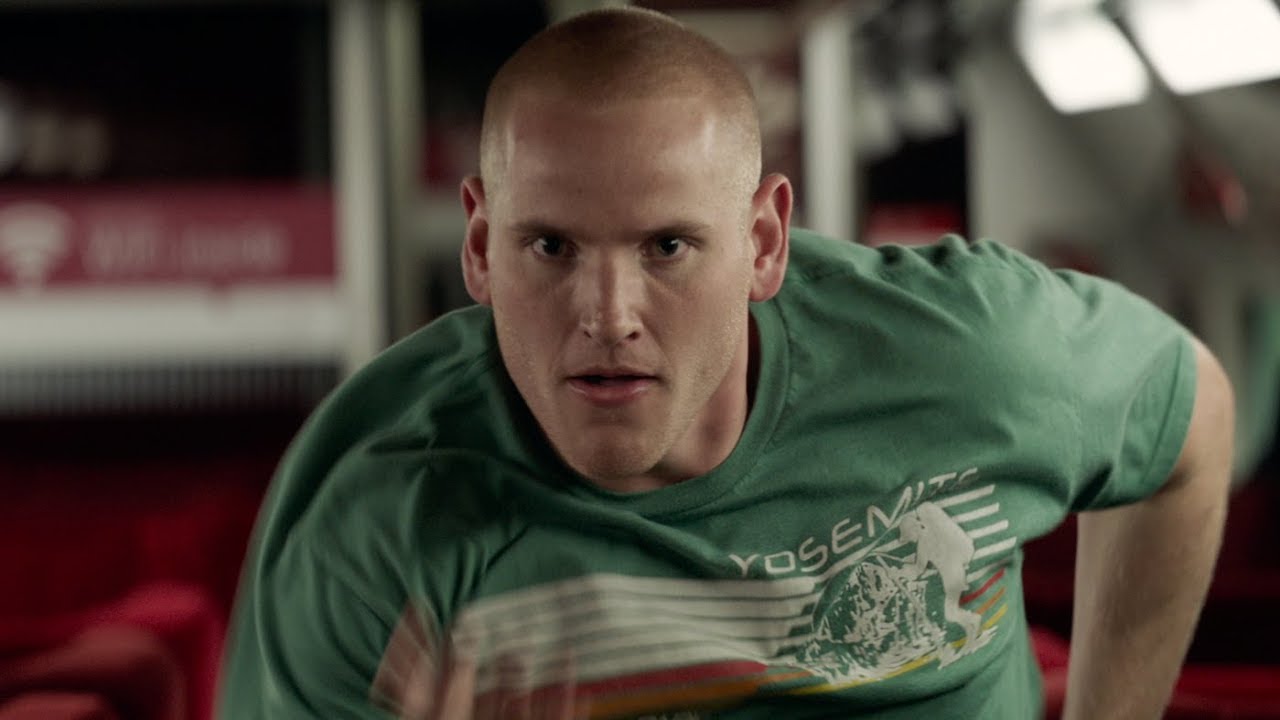Review: The 15:17 to Paris (2018)
Operating somewhere between mumblecore, found-footage, war hagiography, and Abbas Kiarostami film, Clint Eastwood’s The 15:17 to Paris is bizarre no matter how you classify it. The film retells the story of three young Americans (Spencer Stone, Anthony Sadler, Alek Skarlatos) who stopped a terrorist attack aboard a 2015 train from Amsterdam to Paris and casts the American protagonists as themselves. On the surface, this approach looks like a stunt and a cheap way to appeal to patriotism. And in some ways it is a stunt. But it’s also a fascinating means of examining a recent historical event and a canny way of portraying ordinary heroism.
Forget about the dreadful opening 20 minutes, which depicts Spencer, Anthony, and Alek in grade school, and you’ll have a much better time with the rest of the film. In this section, Eastwood and company indulge in cliches about schooling, single parenting, religion, bullying, and friendship, all while saddling Judy Greer and Jenna Fischer (as Spencer’s and Alek’s moms) with thankless roles. It’s terrible storytelling undermined by Eastwood’s minimalist approach (in his more recent films, he avoids rehearsals with actors and usually only does one take unless there’s a technical problem with the shot). However, once the film inserts the real-life Spencer, Anthony, and Alek into the story, everything becomes subtly fascinating.
We follow Spencer, Anthony, and Alek through recreations of their ordinary lives and a trip through Europe before we see them recreate their heroic actions aboard the Amsterdam-Paris train that made them famous. These early scenes where Spencer struggles in basic training and Alek wastes time while on duty in Afghanistan can seem like pointless window dressing when placed alongside the meat of the story, but they reveal their remarkable decency and modest ambitions for life. In the Europe section, Spencer, Anthony, and Alek muse about the purpose of their lives and the possibility of destiny propelling them towards some larger purpose, while also taking selfies and gentling ribbing each other for their shortcomings. This is not groundbreaking stuff, but it’s honest and sets up a foundation of simplicity that the climax builds on.
These men are not good actors, but then again, they’re not acting. They’re recreating past events, like Hossain Sabzian does in Kiarostami’s Close-Up. There are a few moments when they let their guard down and the backstory doesn’t provide psychological insight so much as build a backdrop of ordinary American life that makes the train scene all the more remarkable. Spencer proves the most capable actor, possessing a winning charisma, but all three of them act like they’re in a found-footage film, never losing themselves in the scene or forgetting that there’s a camera filming them.
None of this may sound promising as a narrative, but nevertheless, The 15:17 to Paris does work. Once we get to the actual events aboard the train, the film coalesces into a meaningful whole. Instead of cowering in fear or fretting about what to do, the men shift into action without hesitation. Spencer rushes the terrorist and miraculously avoids a bullet to the head due to a misfire. The men struggle with the terrorist and eventually subdue him, saving the lives of potentially hundreds (the terrorist was armed with an AK-47 with over 300 rounds of ammunition on him).
In conventional terms, the climax of The 15:17 to Paris is exciting. Eastwood has quietly excelled at action sequences in recent years, with his economical framing and quiet cutting style building tension in films like American Sniper, and the sequence here is no different in that respect. But it’s also incredible to contemplate as a recreation of a traumatic episode by the very men who lived it. It’s almost avant-garde in its blending of fiction and reality. Beyond that, it’s moving because it’s as if we’re witnessing an act of therapy for Spencer, Anthony, and Alek. They recreate the most terrifying moment of their lives, and we get to watch as they wrestle with what the moment means to them. Eastwood never lets them outright address this fact in the film (it’d be too outspoken for the famously stoic actor/director), but the meaning of all this is evident on their faces. And this is why The 15:17 to Paris is ultimately a moving film experience.
The 15:17 to Paris is a clumsy film, much like the men it depicts. But also, like the men, it is charming. It builds to a powerful conclusion that allows us to comprehend just how remarkable these ordinary men’s actions were on that day in August 2015. If Eastwood had cast movie stars, we’d have gotten an exciting, conventionally-appealing depiction of heroism (and the sort of patriotic propaganda critics constantly accuse Eastwood of making). Instead, we got a bizarre examination of what heroism actually looks like in the here and now.
It may be unsatisfying storytelling, but it’s fascinating art.
6 out of 10
The 15:17 to Paris (2018, USA)
Directed by Clint Eastwood; written by Dorothy Blyskal, based on the book by Spencer Stone, Anthony Sadler, Alek Skarlatos, and Jeffrey E. Stern; starring Spencer Stone, Anthony Sadler, Alek Skarlatos, Judy Greer, Jenna Fischer.
